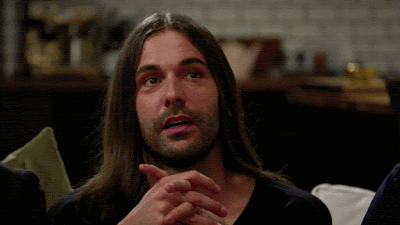 I ordered Halle Butler's The New Me before I even finished Jia Tolento's excellent review (Halle Butler’s “The New Me” Is an Office Novel for a Precarious Age) in the New Yorker. Having just left my own toxic work environment. A " late-capitalist nightmare"? Sign me up! Although, actually, don't. Butler's novel is so bitingly caustic I had to put it aside for a few days, still feeling raw from my own experience. So, read this when you're in a reasonably sane place, emotionally, because Millie, a millennial working "temp-to-perm" is not-so-slowly loosing her mind while trying to find permanent work, a loving companion ("really I would take anyone" she says), and, most wily of all: Happiness.
I ordered Halle Butler's The New Me before I even finished Jia Tolento's excellent review (Halle Butler’s “The New Me” Is an Office Novel for a Precarious Age) in the New Yorker. Having just left my own toxic work environment. A " late-capitalist nightmare"? Sign me up! Although, actually, don't. Butler's novel is so bitingly caustic I had to put it aside for a few days, still feeling raw from my own experience. So, read this when you're in a reasonably sane place, emotionally, because Millie, a millennial working "temp-to-perm" is not-so-slowly loosing her mind while trying to find permanent work, a loving companion ("really I would take anyone" she says), and, most wily of all: Happiness.With only one horrible friend, a woman with "easily interpretable facial spasms", who clearly keeps Millie around to feel better about herself and a boring, low-paying temp job working for a woman eager to be the most dominant person in the room, there are no female heroes in this story (no male ones either). The creeping ills of capitalism infest Millie's world. "In the copy room, she bends down and brings out a small document shredder and pushes it toward me with her foot. She looks at me like I know what this means, like she's shown me the lord's chamber pot and I'm supposed to understand."
Butler's book definitely skewers capitalism, but I was left wondering whether or not this book is a satire. (My working theory is that Americans have a hard time recognizing satire or maybe just me and like literally everyone I know?) Eager to find out, I read a couple of interviews with Butler - while insightful, they did not answer my question, although, I'm not sure it matters that much. Millie's experience is occasionally dreamlike and she frequently veers toward the Untrustworthy Narrator but what she experiences as a character is what many American workers go through on a daily basis: the indignities of low paying jobs and the soul-crushing experience of trying to make a life when you're exhausted at the end of the working day.
The New Me is not only a great addition to the annals of literature about "work" but also really captures the experience of some/many women struggling to find their way in life.












